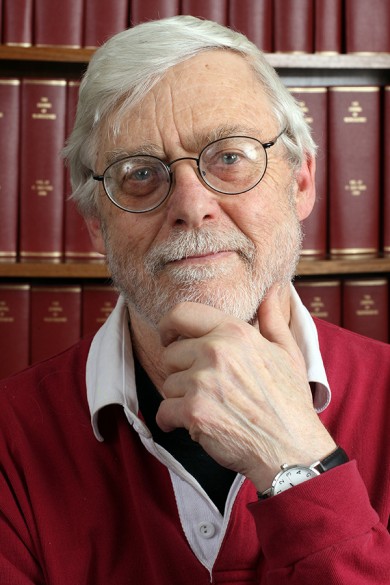Jon Kaas, Gertrude Conaway Vanderbilt Chair in Social and Natural Sciences, Distinguished Centennial Professor of Psychology and associate professor of cell and developmental biology, received the Ralph W. Gerard Prize in Neuroscience, the highest recognition from the Society for Neuroscience, for his pathbreaking work in illuminating the structure and function of the cerebral cortex and plasticity in the developing and adult brain.

Through mapping the cerebral cortex in 30 mammalian species over his career, Kaas has shown the functional and structural organization of the visual and somatosensory—that is, sensations that span the body, such as warmth—systems in detail. Through detailed pictorial construction and electrophysical mapping, Kaas reversed a scientific dogma that brain plasticity only occurs in early life. This has led to new approaches to rehabilitation from brain damage after stroke, from macular degeneration or from motor system disorders and injuries.
“I’m pleased to share this award with Bob Desimone who has done such wonderful research, and who we once tried to convince to move to Vanderbilt,” Kaas said. “From my first days at Vanderbilt, I have worked with outstanding graduate students, undergraduates and postdocs, who made everything possible. The support of members of my Department and other faculty at Vanderbilt has been especially important.”
Kaas continues to record and image brain architecture to further clarify the evolution and functional organization of sensory-perceptual, cognitive and motor systems. As a professor, Kaas remains a dedicated instructor of neuroscience, biological psychology and animal behavior.
“Jon is a titan in his field, and this recognition could not have been more well-deserved,” said John Geer, Ginny and Conner Searcy Dean of the College of Arts and Science. “He has made invaluable contributions to neuroscience, as well as to countless students and to the broader university. He is a foundational faculty member of the College of Arts and Science, and we are fortunate to have him in our community.”
“Jon Kaas’ work was responsible for identifying many new areas of the brain and thus advancing our understanding of the anatomy of the brain with implications toward cognitive neuroscience. It has also demonstrated that the adult brain is not simply hard-wired but can respond to experience and injury,” said Lisa Monteggia, professor of pharmacology and director of the Vanderbilt Brain Institute. “Jon’s pioneering work has advanced our understanding of the brain, and he is incredibly deserving of this award.”
“The society is honored to recognize this year’s awardees, whose groundbreaking research has revolutionized our understanding of the brain from the level of the synapse to the structure and function of the cortex, shedding light on how vision, memory, perception of touch and pain, and drug addiction are organized in the brain,” said SfN president Barry Everitt in a release. “This exceptional group of neuroscientists has made fundamental discoveries, paved the way for new therapeutic approaches, and introduced new tools that will lay the foundation for decades of research to come.”
In addition to the SfN, Kaas is a member of the Society of Experimental Psychologists, the American Academy of Arts and Sciences, the National Academy of Sciences and the Cajal Club.
Kaas shares the SfN award and a $30,000 prize with Robert Desimone, director of the McGovern Institute for Brain Research at the Massachusetts Institute of Technology. The awards were presented during the SfN’s annual meeting in November.